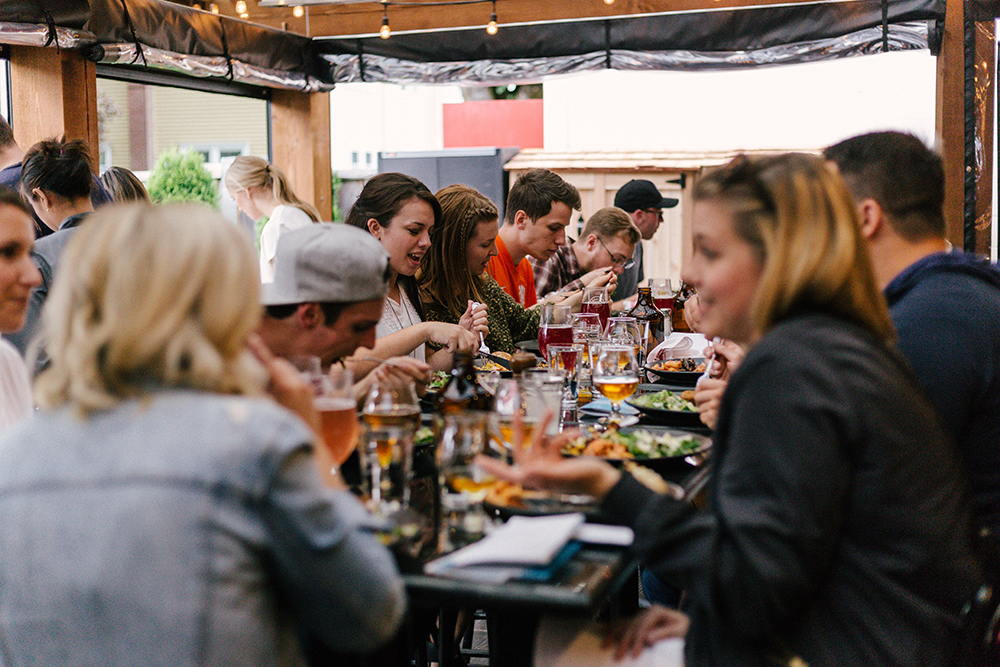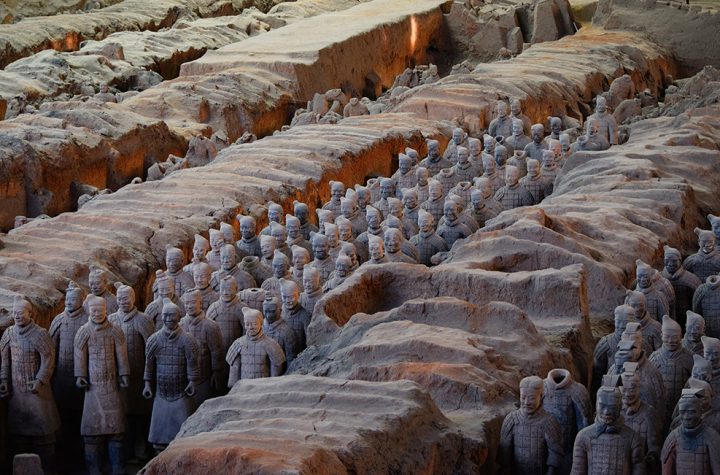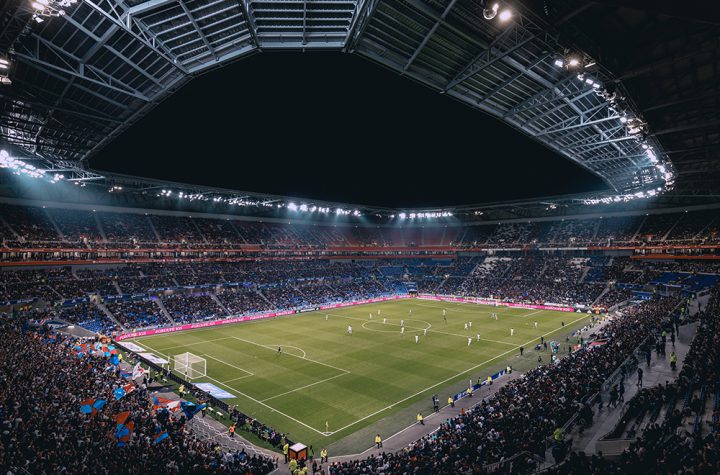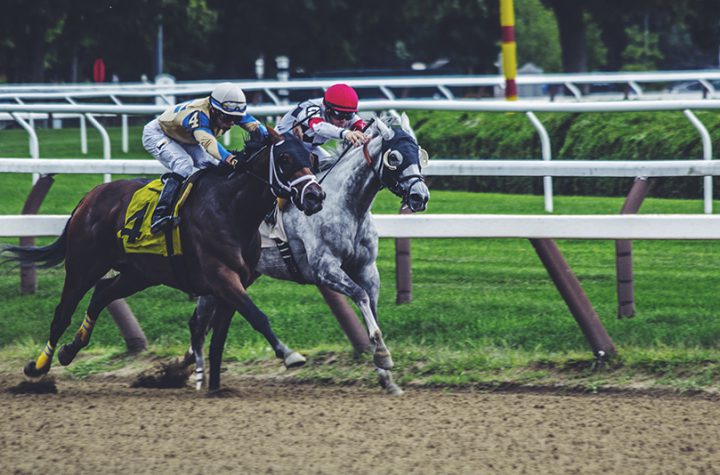
When we first met, in the fall of 2000, Nigel Farage did not seem like the man whose ideas would cause a crisis in British politics, let alone a crisis that would send shock waves across Europe, the wider Western world and beyond.
But 20 years on, thats exactly what he has done. He realizes his dream of taking Britain out of the European Union on Friday, cementing his status as a leading figure in the populist backlash against liberal values that now dominates much of Western politics.
If the U.S. had tried to export its values to Russia after the end of the Soviet Union, we now live in a time when the nationalist rhetoric of Putin seems to have the momentum.
That fall, I had just left Russia, where I had reported on the rise to power of the countrys new leader, Vladimir Putin. Like Farage back then, he was also largely an unknown quantity. Twenty years on, both have succeeded where liberalism has failed. They have done so by listening to those voices and views that believers in the unstoppable spread of liberal democracy forgot and by turning the anger of the ignored into a political force.
Farage had been elected to the European Parliament the year before our meeting as a representative of the U.K. Independence Party, or UKIP, dedicated to pushing the U.K. to leave the European Union. He seemed friendly enough; as a newcomer to politics, he wanted to build bridges with the media.
In our meeting, we spoke about how European institutions used public money, and he offered examples of where he felt cash was being wasted. He struck me as quite interesting in a provocative way but generally pretty unremarkable. A staunch opponent of Britains participation in the euro (hard to imagine now, but such a move was being discussed then), he wore a lapel badge in the shape of a £ sign. That aside, he seemed much like any other suit-wearing, conservative compatriot of the kind we Brits might occasionally encounter abroad.
I wasnt the only one to miss his potential. After all, his ideas were fringe at best. The far right and the far left in British politics had always liked the idea of the countrys departure from the EU, albeit for different reasons. Those on the right viewed the EU as a set of shackles on British sovereignty and a drag on entrepreneurship. The far left was wary of its promotion of free market economics and suspicious of what it saw as a club of capitalists bent on undermining workers rights.
But those ideas put them deeply at odds with most British voters. It wasnt that those voters were necessarily passionate pro-European. Most people just seemed content with the status quo, so much so that in 2006, the Conservative Party leader and future prime minister David Cameron dismissed UKIP members asfruitcakes and loonies and closet racists, mostly.
Indeed, Farage has never won elected office in Britain. He has run seven times to become a member of Parliament and failed every time. Ironically, he has had considerably more success as a representative with the institution he has made a career out of loathing and against which with Brexit he struck such a blow: the European Union.
Perhaps I also didnt anticipate his rise because it seemed so counter to the currents of history. Before I arrived in Western Europe from Moscow, I had spent long periods since 1991 reporting on Russias troubled transition from communism to capitalism and democracy.
When Putin, a former KGB officer, became president right before I left, his ascension was seen as a corrective to the chaos of his predecessor, Boris Yeltin. Many of us Westerners then in Moscow thought a Putin presidency would steady Russias course as the country moved toward a more Western political and economic system.
I remember watching the live feed from the Kremlin of his first presidential inauguration in May 2000. Given the massive changes that Russia had undergone in the previous 10 years, it was hard to imagine then that this quiet, calm new leader would still be there in 2020.
There was no hint then that Putin would come to clash with the West as he has. Moreover, there was no sense that his might be the side to prevail, that in 2019 he could plausibly argue in an interview with the Financial Times that liberalism had become obsolete.
Putin was helped by the shocks of the terrorist attacks of Sept. 11, 2001, followed by the subsequent military campaigns by the U.S. and its allies in Afghanistan and Iraq, and then the financial crisis of 2008, all of which have played their part in shaping the world since 2000.
The financial crisis in particular undermined faith in liberal, capitalist democracy the system that the West had tried to export to Russia after the Cold War. In the U.K., a perception that the pain following the financial crisis was not equally shared helped to fuel discontent with the system, discontent that had an opportunity to express itself in the 2016 referendum on Britains EU membership.
If the U.S. had tried to export its values to Russia after the end of the Soviet Union, we now live in a time when the nationalist rhetoric of Putin seems to have the momentum. Asked in 2014 to name the world leader he most admired, Farage named Putin. And nationalist movements are growing across Europe, from Italy to Austria to Hungary.
Most significantly, perhaps, this brand of politics has crossed the Atlantic. President Donald Trump reflects a Putin worldview in which liberalism is dead and each nation puts its own often narrow interests above all else. Watching Russia playing an ever greater and more assertive role on the world stage during Putins two decades at the summit of power, its not hard to imagine that his slogan might have been Make Russia Great Again.
And what is Brexit but a celebration of nationalism and a retreat from the view that a unified Europe could be a force for peace and prosperity (and, tacitly, serve as a counterforce to Russia)? Trump, its worth noting, is a friend and political ally of Farages, as well as a champion of British withdrawal from Europe. In November, Trump even called in to Farages radio show to offer his advice on solving the Brexit logjam.
That logjam is cleared, but the country remains divided. The mere act of marking the U.K.s departure has become a matter of national debate. (At least for those who can summon the energy to care after four years of ill-tempered political confrontation.) Right-wing newspapers such as The Daily Telegraph are upset over the likely failure of a campaign to get Big Ben ready to chime (its being renovated) and the news that Farage wont be allowed to launch fireworks in central London.
If theres a lesson in the success of Putins and Farages rises from relative obscurity to massive influence one that the pro-Europeans can adopt it’s this: Be prepared to play the long game.
But fireworks or not, Farage has won, and the argument is most likely over for a generation. So if theres a lesson in the success of Putins and Farages rises from relative obscurity to massive influence one that the pro-Europeans can adopt it’s this: Be prepared to play the long game.
Both men had an idea of where they wanted their countries to be and were willing to wait. Their methods differed. Part of Putins popularity has been built on military success, particularly in Crimea and Syria. Farage has relied on influencing the political debate to such an extent that a mainstream party Britains governing Conservatives adopted his project, taking it from the fringes to become official policy.
But an overwhelming majority of Britains young people voted to remain in the EU. Should they continue to think that way, Farage the great disrupter may find his own dream disrupted in the future.





More Stories
A teenager from Co Offaly has been “inundated” with orders for his handmade reindeer decorations after his mother put up a post in a popular Facebook group.
Run Windows apps such as Microsoft Office in Linux (Ubuntu) and GNOME as if they were a part of the native OS, including Nautilus integration. – Fmstrat/winapps
With Australia’s relationship with China at a very dangerous stage, the timing of what is expected to be a ‘more nuanced’ approach from a Biden administration could not be more welcome.